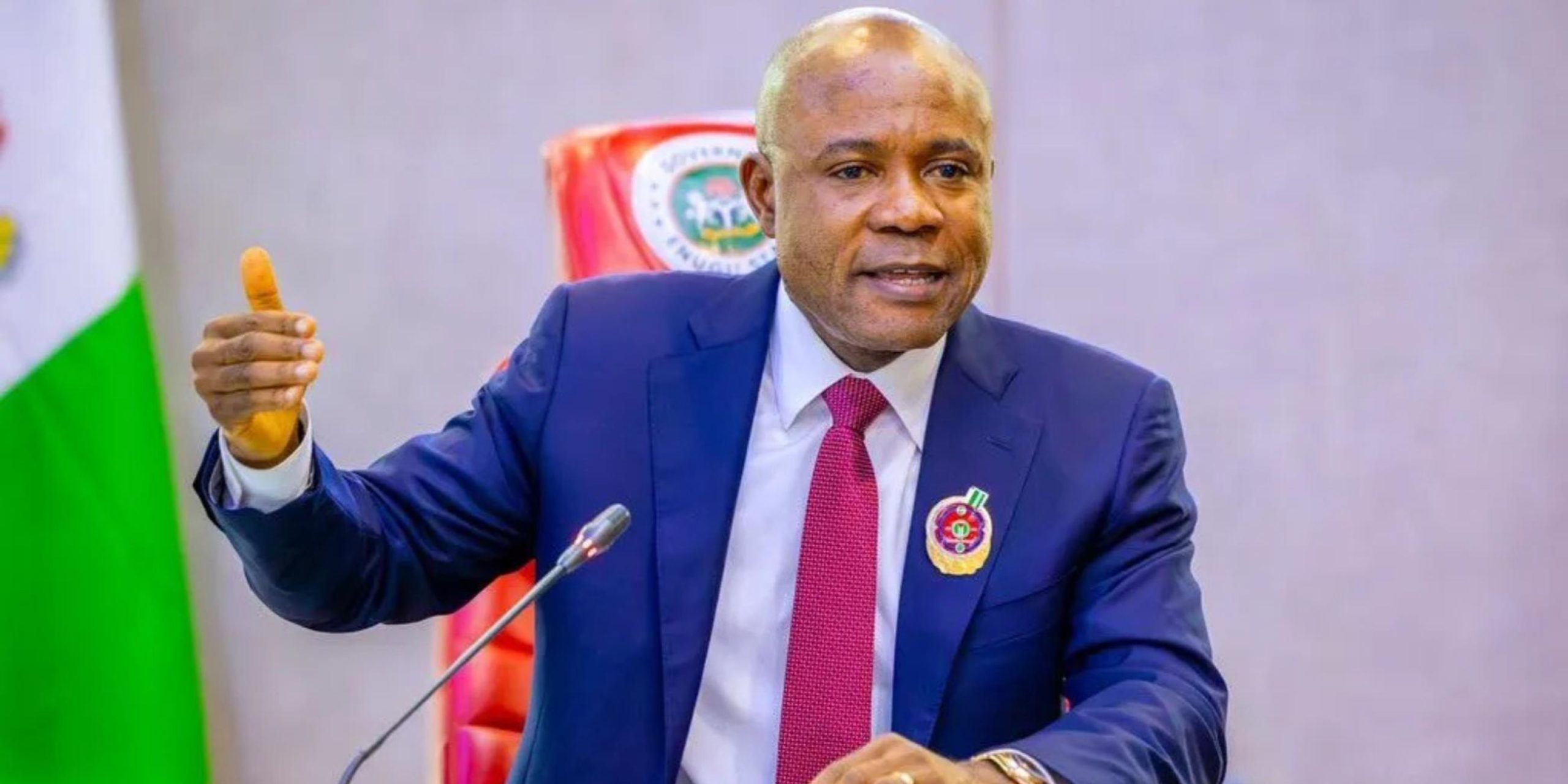BREAKING: Enugu Governor Mbah Sends Bill To Regulate Herbalists Amid Rising ‘Money Rituals’ Scare
In a bold legislative move that is already generating national attention, Governor Peter Mbah of Enugu State has formally transmitted an Executive Bill to the Enugu State House of Assembly seeking to regulate the activities of native doctors, herbalists, and related traditional spiritual practitioners. The move, driven by escalating concerns over ritual killings, exploitation through purported supernatural practices, and criminal misuse of spiritual spaces, signals a major shift in how traditional religious and cultural practices are monitored and enforced in the region.
The proposed legislation is entitled “Maintenance of Internal Security, Vigilance and Order,” and outlines stringent legal measures designed to root out criminality masquerading as traditional spirituality. The bill targets ritual killings, criminal charms (especially bulletproof charms), and the illegal use or occupation of forests and properties for criminal activities such as kidnapping and banditry.
According to the draft text, every person offering spiritual services in Enugu State must register with a designated ministry, department, or agency (MDA) of the state government. These practitioners include native doctors, herbalists, spiritualists, diviners, chief priests, seers, or anyone else offering services under traditional spiritual titles.
“Every person, who engages in the practice or rendering of spiritual services within the state… shall be registered with the ministry, department or agency (MDA) of the state as may be designated by the Governor for that purpose,” the bill stipulates.
Practicing without registration could attract a fine of no less than N1 million and no more than N5 million, or a two-year jail term—or both. This regulation is aimed at cracking down on impostors who exploit vulnerable citizens with false claims of supernatural abilities, thereby undermining genuine spiritual and cultural traditions.
The legislation also goes further to explicitly criminalize money rituals and charms purportedly designed to make individuals invincible or bulletproof—ritual practices that have been frequently linked to violent crimes. Section 15 of the proposed law reads:
“Any person who, under the guise of spiritual or traditional practice, administers or causes to be administered any charm, substance, or object on or for another person, for the purpose of invincibility and other forms of protection to facilitate the commission of any criminal offence; or acquiring wealth or benefits by supernatural means outside any lawful means of livelihood, commits an offence and is liable on conviction to imprisonment for a term of six (6) years or to a fine of not less than five million naira (N5,000,000), or both.”
The crackdown extends beyond individual practitioners. The bill also makes it an offence to use or knowingly allow the use of any religious or spiritual place for criminal acts. Violators will face up to six years imprisonment or a fine of N5 million—or both. In cases involving human parts or the use of human bodies in rituals, the bill prescribes twenty years imprisonment with no option of a fine.
YOU MAY READ
APC Raises Alarm Over Enugu Killings, Kidnappings, Accuses Peter Mbah Govt Of Suppressing Reports
This sweeping legislation places a significant burden on property owners as well. Any landlord, tenant, or custodian of a building or land found to knowingly allow its use for kidnapping, ransom collection, or any bandit-related activities could face twenty years imprisonment without an option of a fine.
Private security outfits and vigilance groups are not exempt either. The law mandates that all such groups must register their personnel with the state government, disclosing information such as the names and roles of any armed guards they employ or deploy. Town union presidents-general are also required to file periodic security reports with local government officials or any department designated by the state.
Another critical component of the bill is its focus on surveillance and intelligence sharing. Hotel owners and landlords will be legally obligated to obtain and transmit valid identification details, phone numbers, occupations, and places of work of all prospective tenants and guests to relevant authorities. Additionally, hotels and guesthouses must install surveillance cameras in all public areas, with recorded footage to be submitted regularly to government agencies.
Penalties for violating these provisions are severe. Landlords who fail to submit required tenant information will be fined no less than N500,000, while hotel proprietors could face penalties of N1 million.
The impetus for the legislation is not without context. On May 28, 2025, the Enugu State Police Command reported the successful rescue of a 13-year-old girl allegedly kidnapped for ritual purposes in Umuojor village, Ishiagu community, Ezeagu Local Government Area. Working in coordination with local vigilantes and the Neighbourhood Watch, police arrested three suspects: Uche Kingsley Agumba (33), Ilo Nweze Onyedikachi (36), and Ejike Odinwankpa (38).
However, the prime suspect, a widely known native doctor named High Chief Levi Onyeka Obu—popularly called “Ezeani” or “E-Dey-Play-E-Dey-Show”—remains at large. Authorities discovered two decomposing bodies in a sealed concrete pit in an uncompleted building reportedly owned by Obu. According to police sources, the victims, one male and one female, were murdered for ritual purposes.
This chilling incident has fueled public outrage and demands for stricter oversight of spiritual practices. Civil society groups have called for the swift passage of the bill, praising Governor Mbah’s administration for taking a proactive stance. “We’ve allowed too much impunity in the name of culture. This bill is the beginning of reform,” said Ngozi Eze, a human rights activist based in Enugu.
Meanwhile, traditional institutions and legitimate practitioners are treading cautiously. While some have welcomed the move as a way to cleanse their practice of impostors, others worry it may encroach on age-old traditions. Chief Ozo Nkemakolam, a respected traditionalist in Nsukka, called for clarity and dialogue. “We need regulation, yes. But we must not criminalize the spiritual foundation of our people,” he warned.
The Enugu State House of Assembly is expected to begin deliberations on the bill within the coming weeks. Early indications suggest a strong bipartisan interest in the proposal, particularly in light of growing insecurity and ritual-related crimes in the region.
Governor Mbah, who assumed office on the promise of delivering transformational governance, has so far focused on security reforms, digital governance, and economic revitalization. His administration has emphasized zero tolerance for crime and pledged to restore public confidence in the justice system.
The proposed bill also aligns with national security directives from the federal government, which has urged state governments to take the lead in combating local criminal networks. By targeting both the symbolic and logistical enablers of crime—such as ritual sanctuaries, criminally occupied forests, and unregulated security actors—the bill represents a multi-pronged approach to security.
If passed, the Enugu State bill could serve as a model for other Nigerian states grappling with similar challenges. Already, there are reports that state governments in Ebonyi, Imo, and Delta are considering parallel legislation. National lawmakers, too, are reportedly watching the Enugu model as a potential blueprint for federal reform.
As public debate intensifies, all eyes are now on the Enugu State House of Assembly. Will lawmakers rise to the moment, or will vested interests and cultural sensitivities stall the bill’s progress? Whatever the outcome, one thing is clear: Enugu is on the cusp of a potentially historic shift in the governance of its spiritual and security landscape.
For many citizens, particularly victims of ritual-related crimes and their families, the stakes couldn’t be higher. And for Governor Peter Mbah, this may be one of the defining moments of his administration.
Stay tuned for updates as this story develops.





